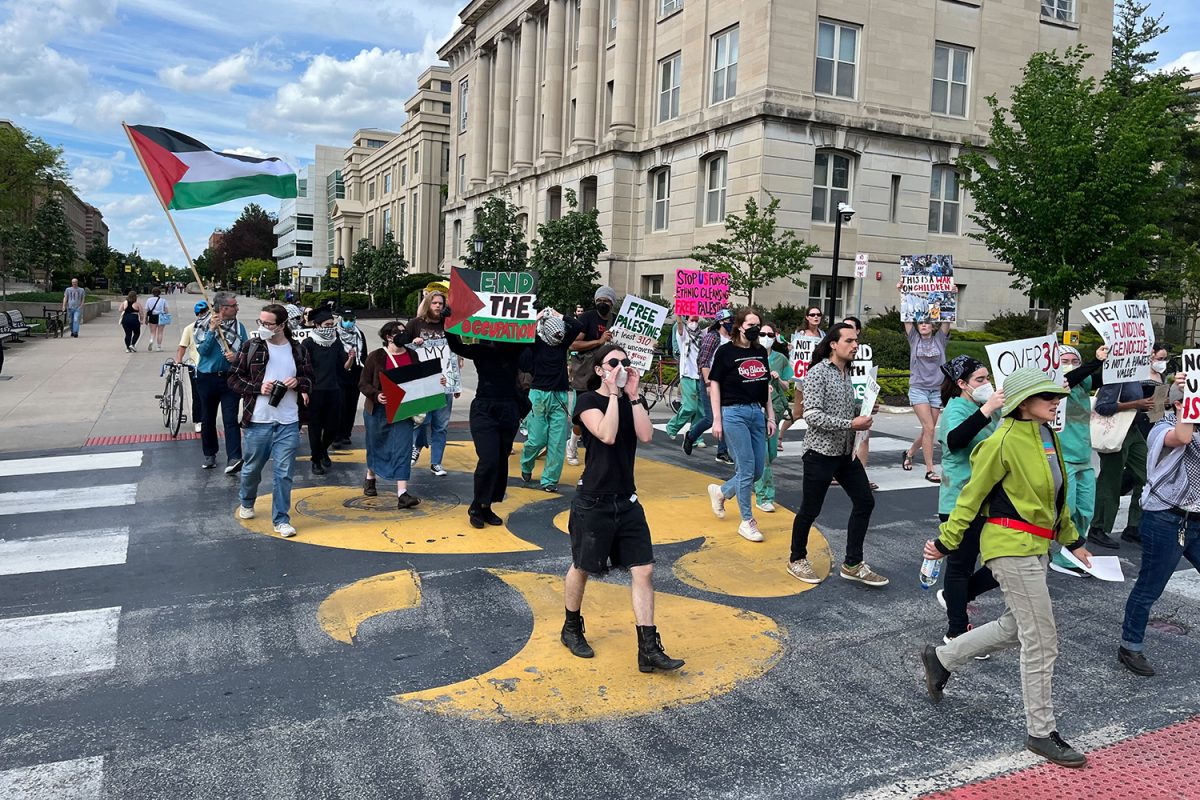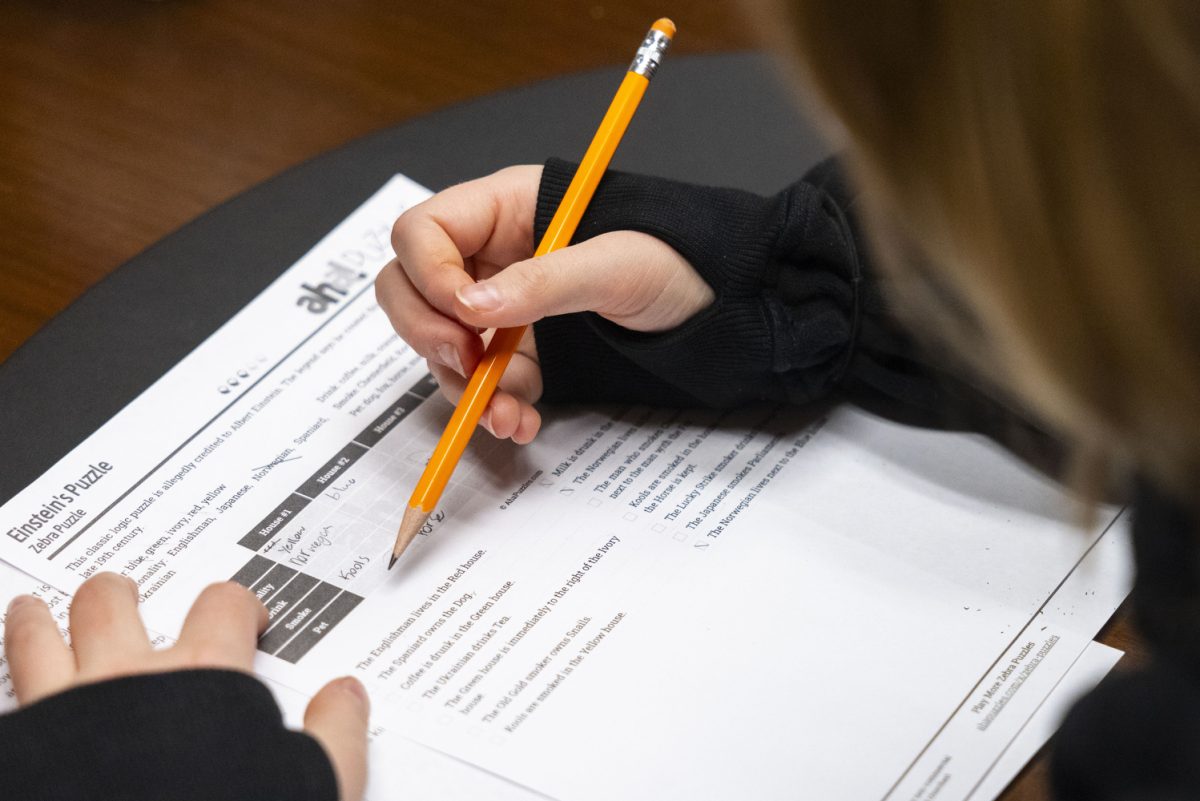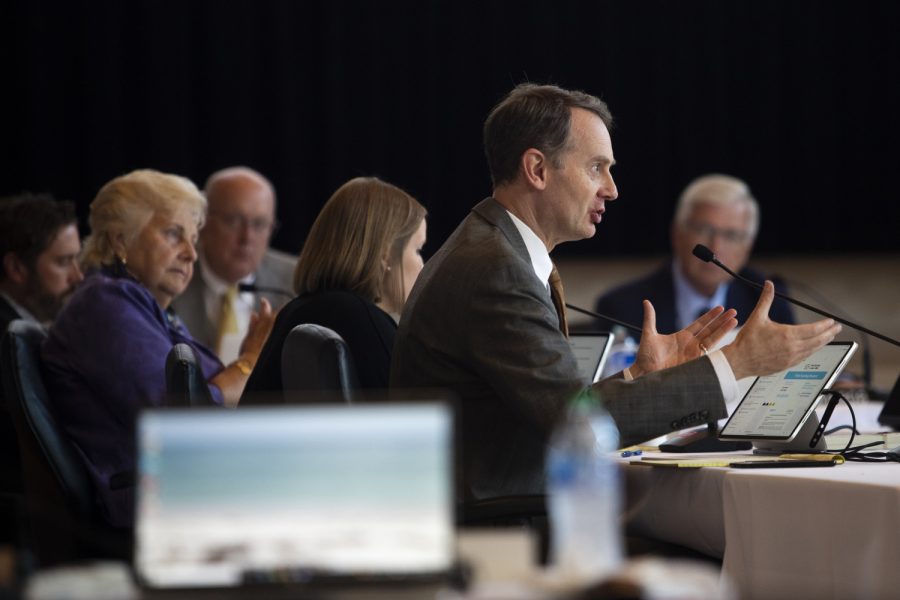On the heels of a viral video between an African-American teen and an Iowa City police officer, Iowa City residents gathered to talk about racial disparity in Johnson County and how citizens can make a change.
The video, which has sparked recent controversy among Iowa City residents, featured a young, black male being held to the ground after officials at the Robert A. Lee Recreation Center called the police because they believed a fight had broken out.
The forum held Wednesday in a crowded room in the Johnson County Health and Human Services Building was the Disproportionate Minority Contact Committee’s second community meeting, in which residents were encouraged to have meaningful conversations about prejudice in Johnson County.
“I hope to see more interaction between the Police Department and black youth, with things like community games,” said Ladarius Taylor, former Kirkwood Community College student. “I’m tired of looking on the Internet and seeing racial tensions.”
But in order for those conversations to happen, activist David Goodson, the event’s keynote speaker, said local people need to be more honest.
“People are so afraid to attach the truth to the issue,” he said. “Race is at the core of disproportionate minority contact. Well, I’m not afraid.”
Goodson is the president of Waterloo’s Bakari Project, which helps connect at-risk youth with counselors and resources. His work focuses on black youth in the juvenile-court system.
In his address to the crowd, Goodson attested to his work in Waterloo and implored the audience to look at race differently and have open conversations with members of the community.
His speech focused on what happens to minority individuals once they are released from prison and become ex-felons.
“Now, all of a sudden, you can’t get a job because you have a felony,” he said. “That’s no law — that’s just a policy that someone made.”
Goodson, who said he hires many individuals with felonies at his counseling service, told the crowd people shouldn’t be overlooked because of criminal records.
“I’ve learned that you don’t have to come from bad circumstances to do bad things,” he said.
Following Goodson’s address, the crowd broke off into focus groups to discuss their experiences with law enforcement and legal services in Iowa City and to generate ideas for action.
“This ripple effect of system-involved racism affects all of us,” said Will Coghill-Behrends, the director of the Teacher Leader Center in the University of Iowa College of Education. “The school-to-prison pipeline is a very real thing, and we want to provide more intelligence so people are more aware.”
Some of the suggestions included having more community conversations, creating social-media outreach, and challenging the idea of racial norms through one-on-one interactions.
Others said conversations alone were not enough to make a lasting change, and they called for more meetings such as this one to set real goals and action plans.
People at the meeting offered ideas such as social-media sharing, more community conversations with the Disproportionate Minority Contact Committee, and a forum in which to share personal stories.
“I have these conversations on a regular basis. I have kids and I talk to them about this all the time,” said committee member RaQuishia Harrington. “I want to see action and real changes.”
Goodson left the audience with a message of hope and unity.
“I hope that you can do this work and make a change,” he said. “It’s hard, and it’s bittersweet, but you are your brother’s keeper.”






